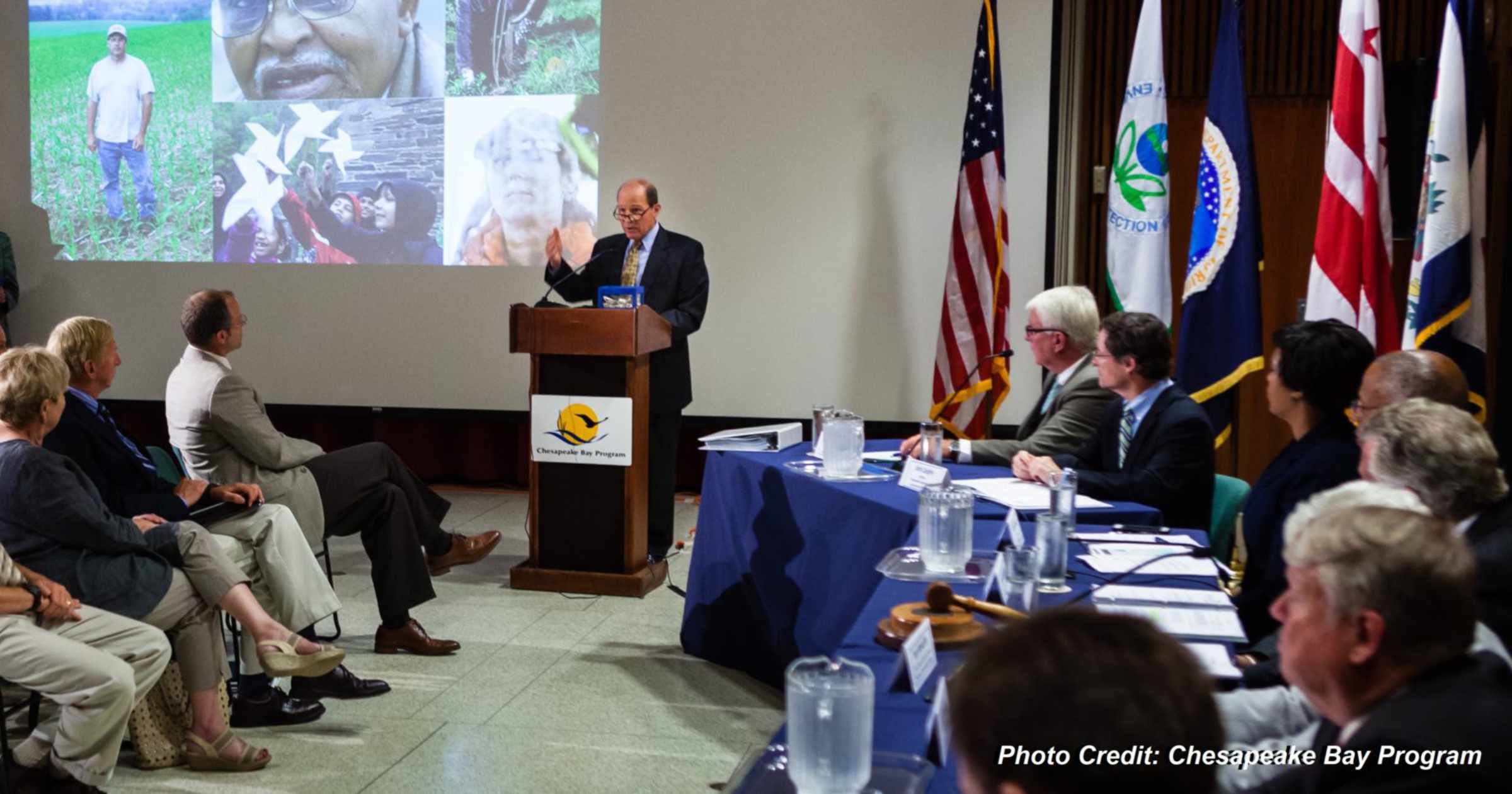
April 26, 2020
public participation (n.) – any decision-making process that directly engages the public and gives full consideration to public input.
According to EPA’s Public Participation Guide, public participation “consists of a series of activities and actions by a sponsor agency over the full lifespan of a project to both inform the public and obtain input from them. Public participation affords stakeholders (those that have an interest or stake in an issue, such as individuals, interest groups, communities) the opportunity to influence decisions that affect their lives.”
Access to information and participation in the public process are essential to CLA’s work to improve the health of the Chesapeake Bay Watershed and its communities. But how does public participation function during Covid-19 emergency orders and social distancing? How do government entities maintain transparency? What does an open meeting look like when everyone is being asked to stay home? What rules should public bodies follow?
Due to the numerous stay-at-home orders currently in place, states across the country have had to adjust their public processes. Below is a summary of how Maryland, Pennsylvania, and Virginia have adapted their open meeting laws (also known as “Sunshine Laws”) during the Covid-19 pandemic, along with links to each state’s written guidance documents.
In Maryland, any public body holding a meeting is governed by the Maryland Open Meetings Act (MD GP § 3-102) (“the Act”). Under the Act, public bodies may conduct meetings via teleconference, provided the public has an opportunity to observe and, at a minimum, listen. The state has published a detailed FAQ outlining “best practices” for holding public meetings during the COVID-19 emergency, which may be found here. The FAQ covers teleconference meetings—both public and closed sessions—as well as situations where an in-person meeting may be held while the public participates remotely.
Key points from the FAQ include:
The FAQ emphasizes that hosting parties should make every effort to provide the public with the best possible opportunity to observe meetings that are traditionally open to the public.
Under the Pennsylvania Sunshine Act, (65 Pa.C.S. §§ 701-716), public meetings are generally required to be held in public buildings with open public participation. In response to COVID-19, the Pennsylvania legislature enacted Act 15 of 2020 ("Act 15"), which clarifies how public meetings may be conducted during the emergency.
Key provisions include:
The Pennsylvania Office of Open Records recommends that electronic meetings be recorded and that recordings be proactively made available to the public.
You can access the full guidance from the Pennsylvania Office of Open Records regarding Act 15 and the Sunshine Act during the COVID-19 emergency here.
Under Virginia’s Freedom of Information Act (VA Code Ann. § 2.2-3708.2), public bodies generally cannot meet electronically except in limited situations, including during a declared emergency. When meetings are held electronically due to an emergency, decision-making is restricted to actions addressing the emergency or its anticipated effects.
In a March 20, 2020 advisory opinion, the Virginia Attorney General clarified that public bodies may take only urgent actions that cannot be deferred without causing irrevocable public harm. Nonessential decisions should be postponed until in-person meetings are possible.
Additional requirements for emergency electronic meetings include:
The full opinion can be accessed here.
We recognize that these new statutes, rules, and policies can be confusing. CLA can help you navigate this unprecedented time. If you have questions about Bay jurisdictions outside Maryland, Virginia, or Pennsylvania, or about a specific situation, please complete our online intake form HERE.